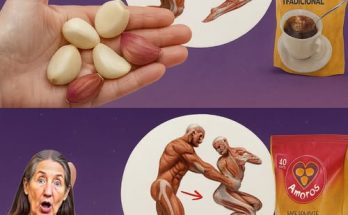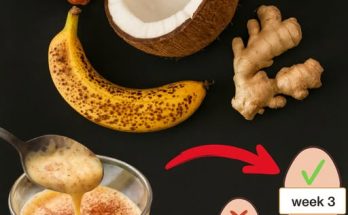As we prepare for Thanksgiving, our national day of gratitude and gluttony, plenty of people are cooking up menus packed with dairy goodness — but how do we whey the health scales in our favor?
Some cheeses are better for you than others, and picking the right ones can mean getting a tasty meal while also loading up on protein, vitamins, and good bacteria.
Many dietitians say that cheese — and any food people enjoy — shouldn’t be off-limits.
“We tend to view food as either good or bad for us,” Lisa Young, a registered dietitian at New York University and the author of “Finally Full, Finally Slim,” previously told The Post.
However, she said, such thinking isn’t necessarily useful — or, well, healthy. Young notes that cheese “provides protein [and] calcium, so there is definitely a place in the diet for it,” specifying that aged cheeses help to aid digestion and boost immunity.
Those who consume cheese and full-fat dairy have also been found to lower their likelihood of developing diabetes or hypertension. A 2020 study — which surveyed more than 145,000 people in 21 countries — found consuming two daily servings of dairy of any kind reduced the risk posed by either condition by 11% to 24%.
Research also suggests eating cheese can lead to a longer, richer life.
Un-brie-lievable. Read on to learn more about the healthiest cheeses to add to your holiday spread.
Cottage cheese
Cottage cheese is a mild, fresh, soft cheese that has recently experienced a renaissance, popping up on TikTok and being enthusiastically adopted by Gen Z as a dairy staple.
It’s an easy substitute for ricotta, making it an excellent pick for lightening up lasagnas or crafting a high-protein cheesecake.
And healthy cooking fans love it because it’s low in fat and high in protein, a combo that preserves muscle mass, keeps you satiated throughout the day, and increases metabolism through the thermic effect of food (TEF). This means the body burns more calories digesting protein than fat and carbohydrates.
The casein protein, in particular, has amino acids that help with your appetite, energy, mood, sleep, and immune system.
Plus, the curdling process creates bacteria that are good for your gut. No wonder it was dubbed the healthiest cheese by Today.com.
Just one tip: Pick full fat or low fat instead of fat free. Registered dietitian Julia Zumpano, RD, told the Cleveland Clinic: “Nonfat cottage cheese may sound like a good idea, but it contains less protein and won’t be as satisfying.”
Cheddar
Cheddar cheese, particularly aged cheddar, is low in lactose, meaning it’s typically easier to digest than other cheeses. It’s a boon for holiday parties and platters that aim to please as many palates and GI tracts as possible.
Cheddar is chock full of calcium, B12, selenium, zinc, vitamin A, protein, and amino acids like leucine, proven to promote muscle growth and repair.
Incorporate aged cheddar into your broccoli casserole or use a slice to add bite to your leftover turkey sandwiches.
Parmesan
Parmesan, or officially Parmigiano Reggiano, is a hard Italian cheese with a sharp, salty flavor that, when finely grated, resembles moss and tastes like a cave of dreams.
Consider grating it on roasted vegetables like Brussels sprouts or potatoes, or else using it to top a simple salad.
This cheese is high in protein and minerals like calcium, selenium, and B12.
Per Health.com, a 1-ounce serving of parmesan covers 25% of the daily recommended amount of calcium, the mineral that “provides structure to the bones and teeth and is necessary for critical processes such as nerve and muscle function and hormone secretion.”
Parmesan is even lower in lactose than aged cheddar, and most folks who identify as lactose intolerant can enjoy it. Better yet, due to the briny taste, a little goes a long way.
Despite its clear health benefits, parmesan is higher in sodium than other cheeses, and those watching their salt intake should shred, grate, and shave with caution.
Goat cheese
As the name suggests, goat cheese is made from the milk of a nanny goat. Also known as chèvre, goat cheese is high in protein and contains zero carbs, making it a great pick for keto eaters.
While goat cheese is lower in calcium than its cow’s milk counterparts, it is rich in copper and riboflavin, promoting energy production, metabolic function, and neurotransmitter synthesis.
According to a 2017 study, the oligosaccharides in goat milk provide beneficial bacteria to the gut, guarding the body against illness and inflammation.
It also has slightly less lactose than cow’s milk, and people with lactose intolerance often report that it’s easier to digets.
Goat cheese makes for a great appetizer and an excellent compliment to cranberry dishes. Versatile, goat cheese can also be whipped and sweetened into a delicious dessert.
Feta
Feta is made from sheep’s milk, and while it is higher in sodium than other cheeses, it is lower in calories.
According to Medical News Today, a single serving of feta provides half of the daily recommended dose of phosphorus, an essential mineral critical to bone and dental health.
Try this viral baked feta pasta or blend feta with herbs to create a delicious dip or combine with roasted garlic and add to mashed potatoes for a delightful spin on a starch staple.









